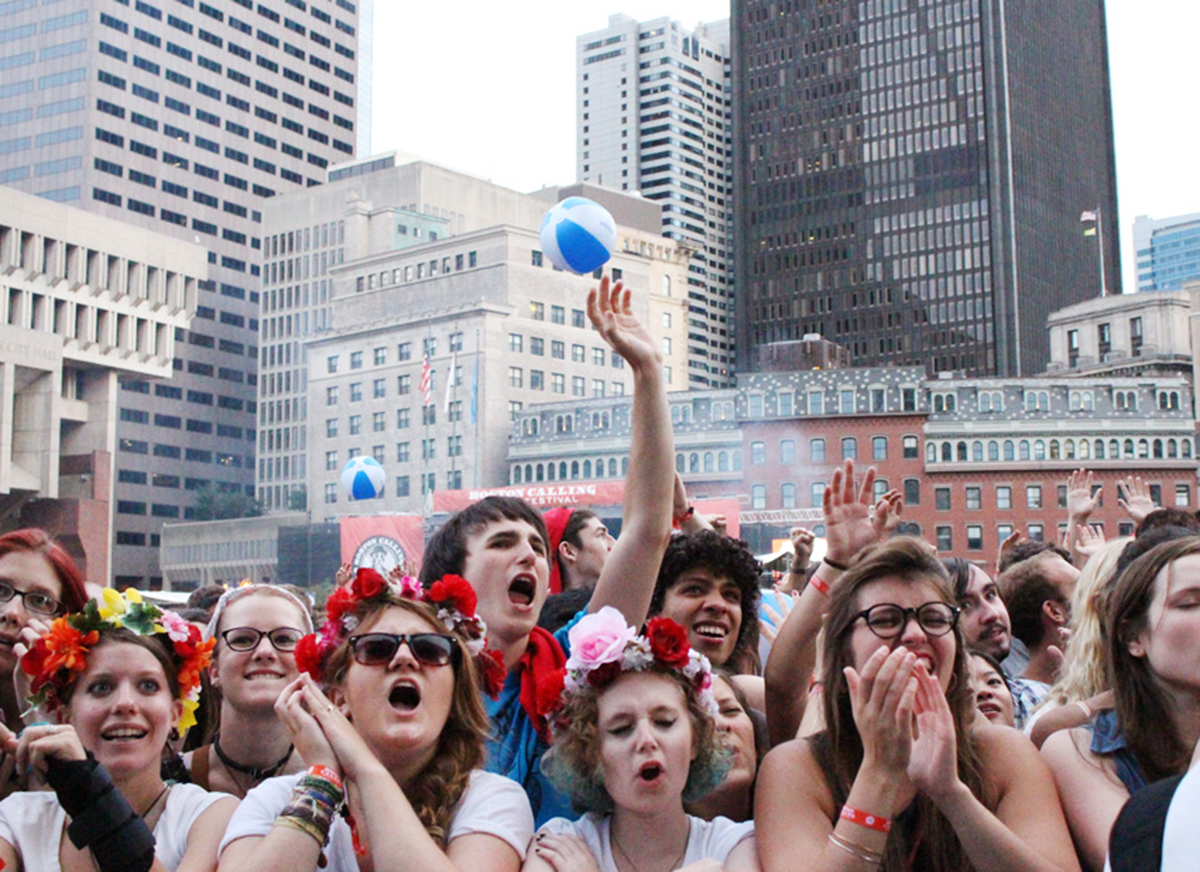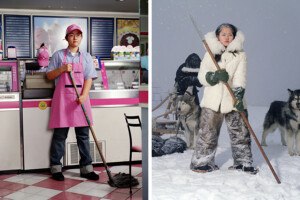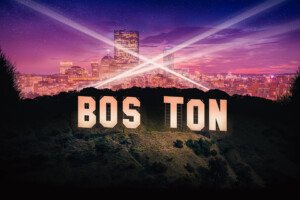How a Boston Calling Lineup Comes Together

PHOTO BY MARGARET BURDGE
Boston Calling throws a little surprise our way with every edition.
Last May, the inaugural event showed us that hosting a major music festival in Boston—in City Hall Plaza of all places—is possible. In September, by bringing in acts like Major Lazer, Wolfgang Gartner, and Flosstradamus, it showed us that you can even have a rave right outside of the mayor’s office.
But for its third edition this Memorial Day weekend, Boston Calling is offering a kick of nostalgia in their lineup with the likes of Death Cab for Cutie, The Decemberists, and Brand New. Additionally, the festival has upgraded from two to three nights of entertainment.
Last week, cofounder Brian Appel took some time out to explain the thought process behind these decisions, as well as break down the steps to curating the lineup for a major music festival.
Putting together a lineup for a three-day festival seems like quite a production. Where do you even begin?
We’ve got a pretty comprehensive group of people involved in the booking. Aaron Dessner from The National is involved, we have a couple of people from our board of directors that get involved, and, of course, we have Bowery Presents as our booking partner. We try to frame out what the vibe of the festival is going to be, first and foremost. Once we have that in place, we spend an awful lot of time on headliners. For us, that’s been the most effective way to go about this—you build from the top down. For May, Death Cab for Cutie was the first artist that we booked, and that worked out great for us because they’re a solid headliner, and it was easy to curate a lineup underneath them. That’s the approach, and when you’re booking a festival, obviously it’s different from booking a club because dates are not flexible. You’re asking bands to accommodate your schedule instead of the other way around, so that’s where it becomes a little challenging.
So do you just have to look for holes in bands’ schedules and figure out if it works?
What we found over the last couple of years is that when agents go to book tours, a lot of times they’ll maneuver bands around the country based on festival schedules, as opposed to the other way around. Sometimes there’s an artist that’s not touring at all and is willing to do a one-off, but sometimes a band knows that Boston Calling is Memorial Day weekend and their agent will reach out.
After two times, is Boston Calling an established enough event for bands to plan their tour schedules around?
I hope so. If we continue to run the events professionally and people like it, I do think that over time, the same way that artists plan around Austin city limits [for SXSW] or around Lollapalooza, they’ll plan their New England dates around Boston Calling.
Has there been anyone you approached that you really wanted, but couldn’t book?
We get our hearts broken on a daily basis. It’s usually a matter of timing more than anything. The money is always negotiable, and we do the best we can to make sure that artists are well compensated for coming, but if a band can’t make it, it tends to be because they’re not touring or they’re in Europe or they’re playing the Pavilion a week before us, and that’s already been locked in. It almost always comes down to timing.
Regarding the acts that you have booked—this May lineup is similar to the inaugural May lineup, but different from September, which had a day dedicated to electronic music and hip-hop. Was that done on purpose?
Yes. This is a different city from late May till beginning of September because you’re missing a giant college population. We knew that putting a festival together for the first week when all the students come back, it would make sense to put a lineup together that skewed toward a slightly younger crowd than the May lineup last year.
So was that decision based solely on the missing college audience?
I wouldn’t say it was fully based on that. We also wanted to try something a little different [in September] than what we did in May. We wanted to get Passion Pit involved, we wanted to bring Kendrick Lamar in, and you have to build a day that’s fairly cohesive when you’re bringing in electronic and hip-hop acts, so that’s the direction September started to take.
Is that a pattern you’ll follow from now on with May and September lineups?
I can’t say for sure. We’re still in the booking process for this coming September, and there are a couple of acts that’ll be interesting and surprising to people. I don’t think it’s our intention to be predictable and say that every May you’ll get an indie-rock set and every September you’ll get an electronic set.
Some people only bought Sunday tickets in September. Are you expecting them to come at all in May?
I think that what I learned—and I can only speak personally here—is that this is an industry where people have strong opinions about music that they like and artists that they want to see and artists that they don’t like. This is a city where people are particularly opinionated on their sports and music and everything else, so I never get offended when somebody tells me that the lineup sucks, nor do I get bullish when somebody tells me that the lineup is amazing, because it all comes down to personal preference. For all the people who came to the electronic and hip-hop day on Sunday in September—I totally understand that May might not be the perfect lineup for them. But there’s an awful lot of people who are delighted with it. We just try to build a lineup that we feel represents good music and a good experience.
A big part of the positive reaction to this May’s lineup seems to be nostalgia-driven. Was that also done on purpose?
That was actually not the intention in the beginning. We put some new stuff in there, of course, with Bastille and The Neighbourhood and other acts that are very current and radio-friendly. But once we released the lineup and comments everywhere were, “Oh, this is my high school dream concert,” we were like, “Well, we shouldn’t fight it. We should embrace it.” It’s probably just going to make for a fantastic audience vibe for the whole weekend.
How important are local bands to the lineup?
We always reserve at least two slots for local Boston bands.
How did the decision to add a Friday night come to be?
That was interesting because it wasn’t really something we spent a lot of time thinking about. One of our booking partners from Bowery called and said, “Hey, have you ever considered adding a Friday night element to this? The reason I’m asking is because there’s the potential opportunity to bring Jack Johnson in, and it may not be the perfect fit for the weekend, but if we wanted to think about adding another night, that could work out well.” So we went down the road with City Hall and had the conversation, and it all ended up coming together nicely.
The festival seems to improve a little bit each time. From the first time to the second, you made the decision to have the stages face each other. This time, you added a Friday night. Is there anything else new we should expect?
We’re bringing Sam Adams in, and they’re going to be celebrating their 30th anniversary, so that’ll be a great piece of celebration throughout the weekend. We’re still working on finalizing our layout—there’s some construction going on at Government Center, so I think some things might be a little different than what people who came in September will expect. But other than that, as always, it’s general admission, you can come and go as you please throughout the weekend, and a little bit nicer weather than last May wouldn’t hurt anybody.


